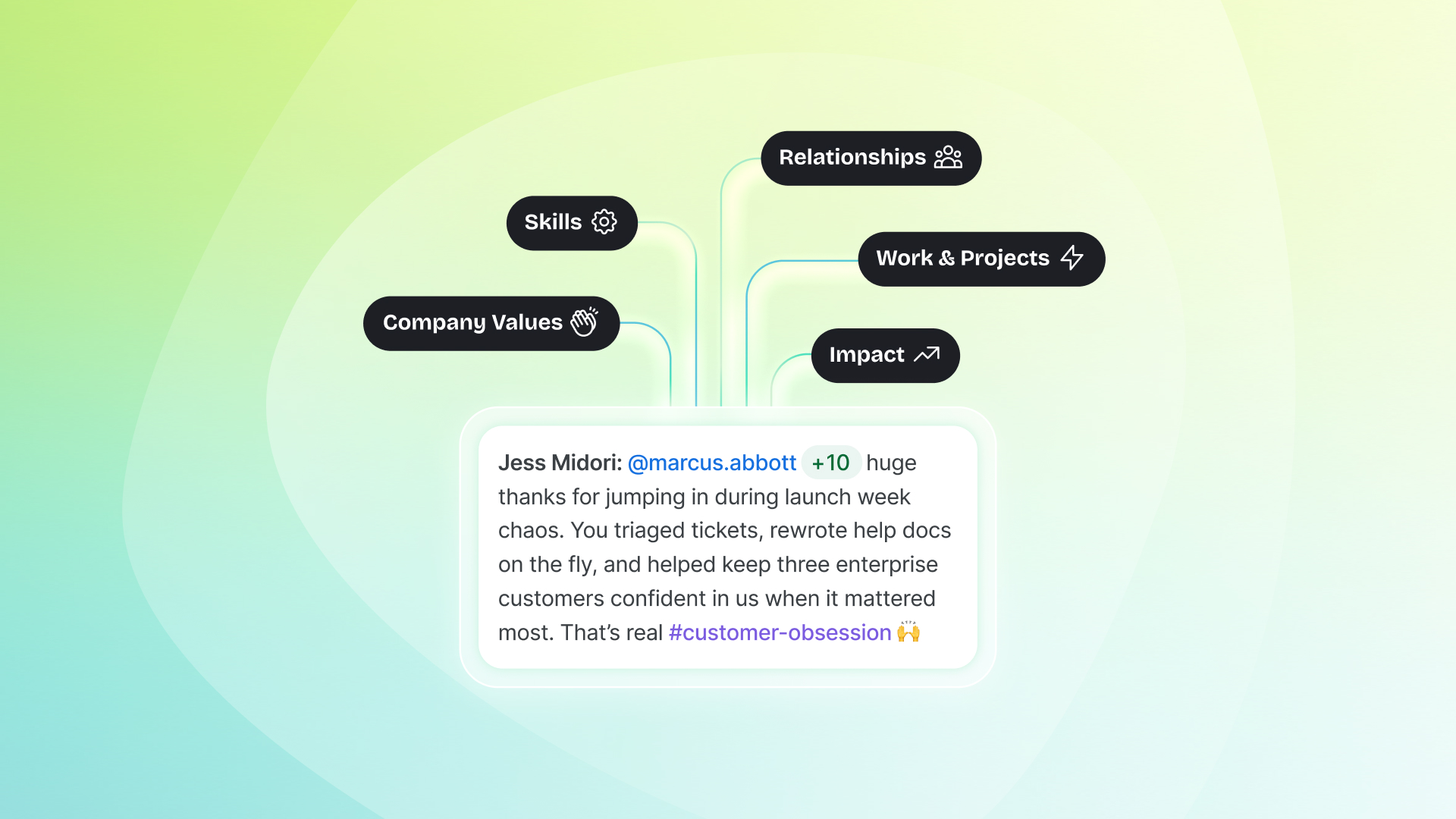Real Talk: Managing Isn’t What It Used to Be

Last Tuesday, I realized I'd spent more time in Slack than actually doing my job. After four hours of back-to-back 1:1s, I was mentally drained (even though the conversations were meaningful) and hadn't touched my own work. Then I went straight into a leadership meeting where I had to shift gears completely and pretend I had bandwidth for another 'quick pivot.'
By 5:00, I was staring at my computer screen, wondering when managing became this impossible juggling act between therapist, traffic cop, and miracle worker.
If that sounds familiar, this is for you.
The job changed, but the support didn’t?
A friend at another company told me recently, "I'm managing six humans through screens and navigating reorgs that happen faster than I can update my org chart. And somehow I'm supposed to keep everyone engaged?!”
That hit hard because it's exactly what so many of us are experiencing. We're managing with performance review templates from 2012 and leadership training built for in-person, 9-to-5 work. If that’s not enough, Management feels broken because it is.
The data backs up what we already know: most of us are struggling. Not because we're bad managers, but because we're trying to do an impossible job with impossible tools (if we even have tools).
Lenny Rachitsky and Noam Segal recently surveyed over a million tech workers, and the numbers are pretty brutal:
A new survey of over 1 million tech workers found:
- Only 26% of workers rate their managers as highly effective
- Workers with ineffective managers are 4.3x more likely to be at risk of leaving
- People with great managers feel 63% more belonging and 31% less burnout
Manager quality is one of the most powerful levers a company has, but most of us are being asked to lead without the time, training, or tools to do it well. We feel this deeply, too: According to a study by Perceptyx, 39% of managers report increased pressure from leadership, while 37% note a rise in pressure from direct reports.
We're relied on more than ever, and supported less than ever.
What’s not working
Here's what I'm hearing from managers everywhere, and honestly, some of what I'm experiencing, too:
- Performance reviews are a waste of time. We're using the same templates and frameworks from years ago, and holding conversations only once or twice a year. In today's collaborative, fast-paced workforce, it's not helping anyone grow.
- 1:1s have turned into status updates. I want to coach and develop my team, but when you have 30 minutes and three fires burning, it's hard to get past "How are things going?" to the conversations that actually matter.
- Giving feedback feels risky. When trust isn't there, even well-intentioned feedback can land wrong. I've seen too many conversations shut people down instead of opening them up.
- Team issues bubble up too late. By the time pulse surveys tell us there's a problem, it's already a crisis. We need early indicators instead of learning about struggles through side conversations.
- The culture expectations feel overwhelming. We're asked to model and carry company culture while juggling everything else on our plates. It's a lot of responsibility without always having the right support or training.
The reality is that most of our tools work against us rather than with us. As Matt Lievertz, VP of Engineering and manager at Cloverleaf, points out:
"People have busy jobs and busy contexts. The more you can empower a manager’s existing context instead of asking them to keep another tab open is a dramatic amplifier."
Instead, we're constantly context-switching between systems that don't talk to each other. Consider the typical manager's day: we start in Slack, fielding team questions, then jump to our project management tool to check sprint progress, pivot to email for stakeholder updates, and finally bounce to our performance management platform to prepare for one-on-ones.
This fragmentation forces us to act as human translators between disconnected systems, spending mental energy on manually transferring context between platforms rather than on strategic thinking or team development. We've built management ecosystems that extract leaders from their natural workflow.
It’s taking a toll. Employee engagement has only fallen twice in the last 12 years, and one of those times is right now. Managers are experiencing the sharpest decline, with only 27% of us engaged at work. The people we're counting on to lead are simply burning out.
My manager mantras
The truth is we’re trying to do an impossible job under impossible conditions. Here’s what I believe needs to change.
1. We need systems that highlight what's working, not just what's broken. Let us celebrate wins and drive progress in real time.
2. Recognition should flow through me, not stop with me. When teams do great work, their names should be front and center.
3. Our tools should reflect how work actually happens. They should be dynamic, real-time, and future-focused instead of static reports about the past.
4. We need frameworks for feedback that foster and strengthen relationships. Harder conversations shouldn't feel like walking on eggshells.
5. Culture development needs more than good intentions. Show us how to model the behaviors and values that matter most.
6. Context makes all the difference. Help us understand the why behind decisions so we can help our teams navigate changes.
7. 1:1s should be development conversations. Give us tools and training for meaningful coaching and growth conversations.
8. Early warning signals beat post-mortem meetings. Real-time insights into team health help us address issues before it’s too late.
9. People-first decisions need organizational support. Back us up when we prioritize well-being over short-term deliverables.
10. It's okay not to have all the answers. Let managers be human and learn alongside their teams.
Here's the thing that underlies all of this: many managers are operating without real authority. As Lievertz puts it,
"There are companies that want the manager role to go out there and play cheerleader, but the middle manager doesn't actually have much power. If you're going to hire and work with smart managers, then you need to give them the freedom and ownership to be able to find ways to maximize their impact."

We’re not alone
If this resonates, you're definitely not alone. That feeling of being stretched thin while managing in the dark is a signal that the support systems haven't kept up with how the role has evolved.
The workforce has responded. 72% of Gen Z employees prefer individual contributor roles after watching managers burn out. They’re saying, “No thanks.”
Lucy Bisset, the director from the talent firm who conducted the study, noted:
“It’s clear mid-level management remains a lynchpin of any organization, and to keep these roles filled employers need to innovate their strategies to make them more attractive - from providing more autonomy, to regular workload assessments and clear upskilling opportunities.”
The job we signed up for isn't the job we're doing now, and that's created a gap that's hard to bridge alone.
I've had moments where I felt like I was letting everyone down: my team, my company, my family. What I'm learning is that acknowledging these challenges is the first step toward making things better.
So here's what I'm curious about: What would you add to this my mantra? What's helped you feel more equipped as a leader?
We deserve support systems that enable us to do our best work. Because here's the thing: your company's success runs through us. Every retention rate, every creative idea, and every dollar made flows through the quality of management. These mantras are just the starting point for the kind of investment that determines whether we all win or lose.
Wondering where to start? Download the Manager Playbook to build a better systems for managers and teams alike.








